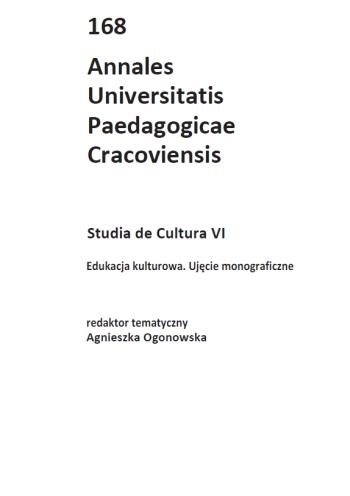Abstract
John Calvin “for dummies”. Popularisation of Calvinism in the Internet and extra-Internet spheres of pop culture
The article tries to describe in what ways John Calvin is presented in texts and images in the Internet and in pop culture. The author examines private websites about John Calvin, linguistic texts, drawings, comic strips and gadgets associated with him. She indicates some functions of semiotic changes of the reformer and extra-religious contexts in which he appears. The personality of the 16th century reformer and theologian has at least two functions: in the religious context it is “a symbol of resistance” against such phenomena as consumerism and hedonism and in the context of humour and satire, the message is incompatible with orthodox religious texts.
References
Bem K., Makowski J., Kalwin Reformator, „Polityka.pl”; http://www.polityka.pl/historia/297191,1,kalwin-reformator.read (dostęp: 5.05.2014).
View in Google Scholar
Chaciński B. (2007), Totalny słownik najmłodszej polszczyzny, Kraków.
View in Google Scholar
Hendrykowski M. (2005), Metafory Internetu, Poznań.
View in Google Scholar
Krzan K. (2008), Ekstaza w wersji pop. Poszukiwania mistyczne w kulturze popularnej, Warszawa.
View in Google Scholar
Kowalski P. (1996), (Nie)bezpieczne światy masowej wyobraźni: studia o literaturze i kulturze popularnej, Opole.
View in Google Scholar
Kowalski P. (2004), Popkultura i humaniści. Daleki od kompletności remanent spraw, poglądów i mistyfikacji, Kraków.
View in Google Scholar
McGrath A.E. (2009), Jan Kalwin. Studium kształtowania kultury Zachodu, Warszawa.
View in Google Scholar
Melosik Z. (2007), Teoria i praktyka edukacji wielokulturowej, Kraków.
View in Google Scholar
Melosik Z., Szkudlarek T. (1998), Kultura, tożsamość i edukacja: migotanie znaczeń, Kraków; http://swarzedz.pbp.poznan.pl/files/kultura.pdf (dostęp: 5.01.2014).
View in Google Scholar
Nieroba E., Czerner A., Szczepański M.S. (2010), Flirty tradycji z popkulturą. Dziedzictwo kulturowe w późnej nowoczesności, Warszawa.
View in Google Scholar
Siuda P. (2010), Religia a Internet, O przenoszeniu religijnych granic do cyberprzestrzeni, Warszawa.
View in Google Scholar
Skowronek K., Pasek Z. (2013), Nowa duchowość w kulturze popularnej. Studia tekstologiczne. Kraków.
View in Google Scholar
Szpunar M. (2011), Społeczne konteksty nowych mediów, Toruń.
View in Google Scholar
Tyrała R. (2011), Religijność współczesna – między erozją a metamorfozą, [w:] Kulturowe aspekty społeczeństwa informacyjnego, red. L. Kapralska, Kraków–Łódź, s. 127–146.
View in Google Scholar
Zieliński T.J. (2013), Protestantyzm ewangelikalny. Studium specyfiki religijnej, Warszawa.
View in Google Scholar

